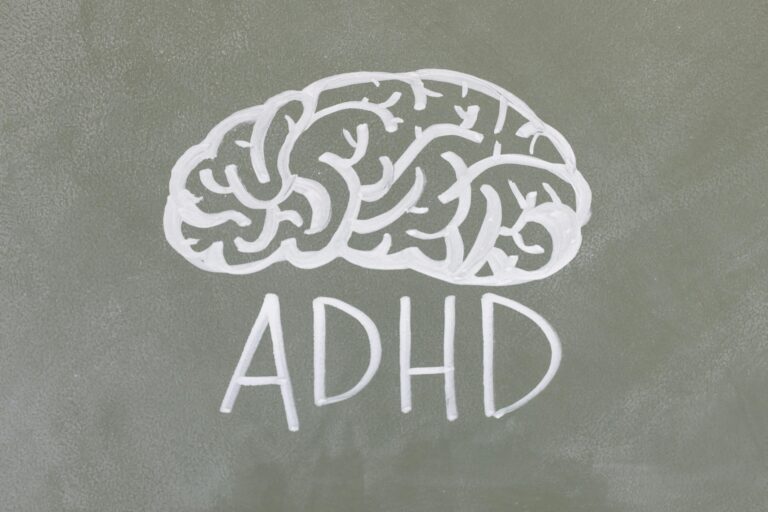How Food Impacts Brain Health
What most people don’t realize is that nutritional psychiatry and mental health are deeply connected.
The question begs: why?
Why does food affect how the brain functions?
Nutritionists and scientists alike point toward the gut-brain axis. The importance of the gut-brain axis was detailed in a recent study. It is the microbiota of the gut that partially shapes mental health.
Also referred to as the microbiome, the gut microbiota consists of more than 100 trillion microorganisms ranging from bacteria to fungi, viruses and more. The entirety of those organisms reside within your digestive track.
The gut microbiota that largely determines the health of the body. What few are aware of is that the gut microbiota also influences the brain. What influences the brain influences the mind.To put it simply, your gut microbiota plays a significant part in determining your brain chemistry. Brain chemistry shapes mental health.
The challenge lies in optimizing the gut microbiota.
Gut microbiota optimization is one part genetics and one part food intake.
The Gut and the Brain Have an Ongoing Dialogue
Your stomach communicates directly to your brain using the microbiota as a conduit. It is your choice of food and beverage selections that determines the type of message sent between the two.
Choose whole foods rich in vitamins, minerals, and nutrients and you’ll enhance the “message” transmitted from your microbiota to your brain.
A healthy diet leads to the growth of bacteria that proves helpful to the microbiota and the brain. Healthy eating also helps stop the formation of harmful microbiomes.
Be Aware of Dysbiosis
A diet consisting of food laden with fat, sugar and salt compromises the gut-brain axis. Such dysfunction is referred to as dysbiosis. Dysbiosis causes problems with neurology and even has the potential to catalyze mental diseases.
Dysbiosis is a flawed regulation of the gut-brain axis pathways. In plain terms, this means the barrier between the central nervous system and cardiovascular system gradually become permeable.
The result of such barrier leakage is an inflammation of the blood-brain barrier. Resulting neuroinflammation in the gut has been linked to several diseases and other health problems including:
– Multiple sclerosis
– Alzheimer’s Disease
– Parkinson’s Disease
– Stroke
A disturbance of the gut-brain axis communication is also likely to backfire across posterity. The disturbance increases your desire for sugary sweets rather than potentially healthy alternatives such as fresh fruit.
Diet, Neurotransmitters and Emotional Regulation
Chances are you’ve heard of neurotransmitters yet you might not fully understand them. Rest easy as you are not alone in your crowd.
The best way to explain neurotransmitters is to envision them as chemicals that transmit messages between your stomach and your brain.
Your brain then synthesizes the neurotransmitters. The synthesis that regulates emotions. Neurotransmitters that regulate the flow of the body’s blood all the way to the limbs and the brain.
Neurotransmitters also take the form of dopamine and serotonin chemicals that assist in blood flow, gastrointestinal immune system functionality and bowel movements. Such compounds also help the body absorb nutrients contained within food.
Alcohol Also Impacts the Brain’s Health
Alcohol, especially red wine, is similar to eggs in that there are contradicting studies regarding supposed health benefits and drawbacks. Though some data points to a daily glass of red wine being a net positive for the body, alcohol is a net negative for the brain.
A recent study clarified the dangers of alcohol in the context of brain health and functionality. Even small amounts of alcohol are unhealthy for the brain. Moreover, the study data reveals the irregular consumption of alcohol is also unhealthy for the brain.
It takes mere one drink of alcohol to increase the risk of dementia. Both genetic analysis and statistical methods show the more alcohol an individual drinks, the higher the risk of dementia. The finding is important as pervious studies indicated that light or moderate consumption of alcohol had the potential to protect the brain.
Take a deep dive into the data and you’ll find alcohol is a depressant that damages the gut microbiota, the central nervous system and the brain.
The consumption of alcohol ultimately causes brain atrophy. Moreover, alcohol’s damage to the nervous system also leads to even more atrophy. The end result is a higher chance of dementia.
Alcohol is especially harmful to the brain’s memory center called the hippocampus. Such an impact results from the aforementioned cellular atrophy.
It is also worth noting alcohol prevents neuron expansion through the reduction of vitamin B levels. It is vitamin B that is fundamental to the brain’s cognitive abilities.
Alcohol isn’t the only liquid threat to brain health. Caffeine also presents a clear danger to brain functionality. Caffeine is a natural diarrhetic, meaning it causes the body to remove moisture and dry out.
Such dehydration is particularly problematic for the brain as it consists of 80% water.
Instead of drinking caffeine in the morning and alcohol at night, opt for flavored water such as fruit-infused water. Non-alcoholic wine and beer are also superior alternatives to traditional alcoholic drinks.
Make the Transition to a Brain-friendly Diet
Though there is no “miracle” food for the brain, making a concerted effort to eat healthy will help with cognition, memory, mood and mental health. Food diversity is especially important.
Do your best to eat the colors of the rainbow at every meal. “Rainbow eating” provides the gut microbiota and brain with a wide array of antioxidants, minerals and vitamins.
It is those essential nutrients that are necessary for brain nourishment. Such diverse nourishment also safeguards the brain against the damage caused by oxidative stress.
When in doubt, opt for meals consistent with the Mediterranean approach to eating. Data shows the Mediterranean diet greatly benefits brain health.
The highlights of the Mediterranean diet include:
– Nuts
– Seeds
– Vegetables
– Fruits
– Wholegrains
It is suspected that the Mediterranean diet helps reduce the rate of cognitive decline. This unique diet also appears to reduce the risk of cognitive impairment. It is that risk reduction that ultimately decreases the risk of dementia.
Be particularly mindful of your carbohydrate and fat consumption. Often demonized, both carbs and fats are essential for optimal brain health.
Give preference to complex carbohydrates as opposed to simple carbs. As an example, it is better for your body and brain to eat beans and vegetables than muffins, pretzels and cookies.
The body breaks down such healthy carbs, creating glucose that the brain uses for energy. If there is insufficient complex carbohydrate intake, the brain will not function as designed.
Healthy fat such as that found in avocado and fish is also important for brain health. Fat is fundamental to the brain as it forms an essential component of cellular walls that assist nerve cells, also known as neurons. Eliminate the fat and the brain’s neurons no longer function.
In particular, it is important to prioritize Omega-3 fats. You can find Omega-3 fats in nuts, flaxseed, salmon and sardines.
Ramp Up Your Intake of These Vitamins for Better Brain Health
Mood-boosting foods help your brain function as designed. A diet rich in food containing vitamin B, C, D and E promotes brain functionality. Moreover, a diet featuring foods with such vitamins also reduces the chances of cognitive issues throughout the golden years of life.
Examples of food containing the critically important vitamins listed above include:
– Nuts such as walnuts and almonds
– Leafy greens such as spinach, kale and cabbage
– Fatty fish such as trout and sockeye salmon
– Mushrooms
– Eggs
– Fortified cereal
The brain’s neurons referenced above require healthy and functional nerve cells. Vitamins B1, B6 and B12 are especially important for those nerve cells.
Examples of food containing such vitamins include:
– Kale
– Chana
– Pumpkin seeds
– Garlic
– Chard
– Sweet potato
– Spinach
– Lentils
Brain health and functionality also hinges on magnesium consumption. Magnesium is especially beneficial to brain health as it enhances neural plasticity. It is neural plasticity that ensures nerves can properly adapt. Enhanced neural plasticity also helps prevent brain damage throughout life.
The mineral is found in tasty foods including:
– Nuts
– Brown rice
– Spinach
– Avocado
The end result of magnesium consumption is enhanced memory, less depression, more energy and better functioning neurotransmitters.
Recap: Genetics aren’t the only determinant of brain health and functionality. Though you cannot change your genetic makeup, you have complete power over your food and beverage consumption.
A little bit of food prep and planning will go a long way in maximizing your brain’s health including cognitive ability and memory recall.
Make a list of the brain-healthy foods listed above (click here for an extensive list) and add them to your grocery shopping list. It will also help to plan your meals at the start of the week, ensuring you eat enough brain healthy foods from Sunday through Saturday.








4 Comments
Comments are closed.